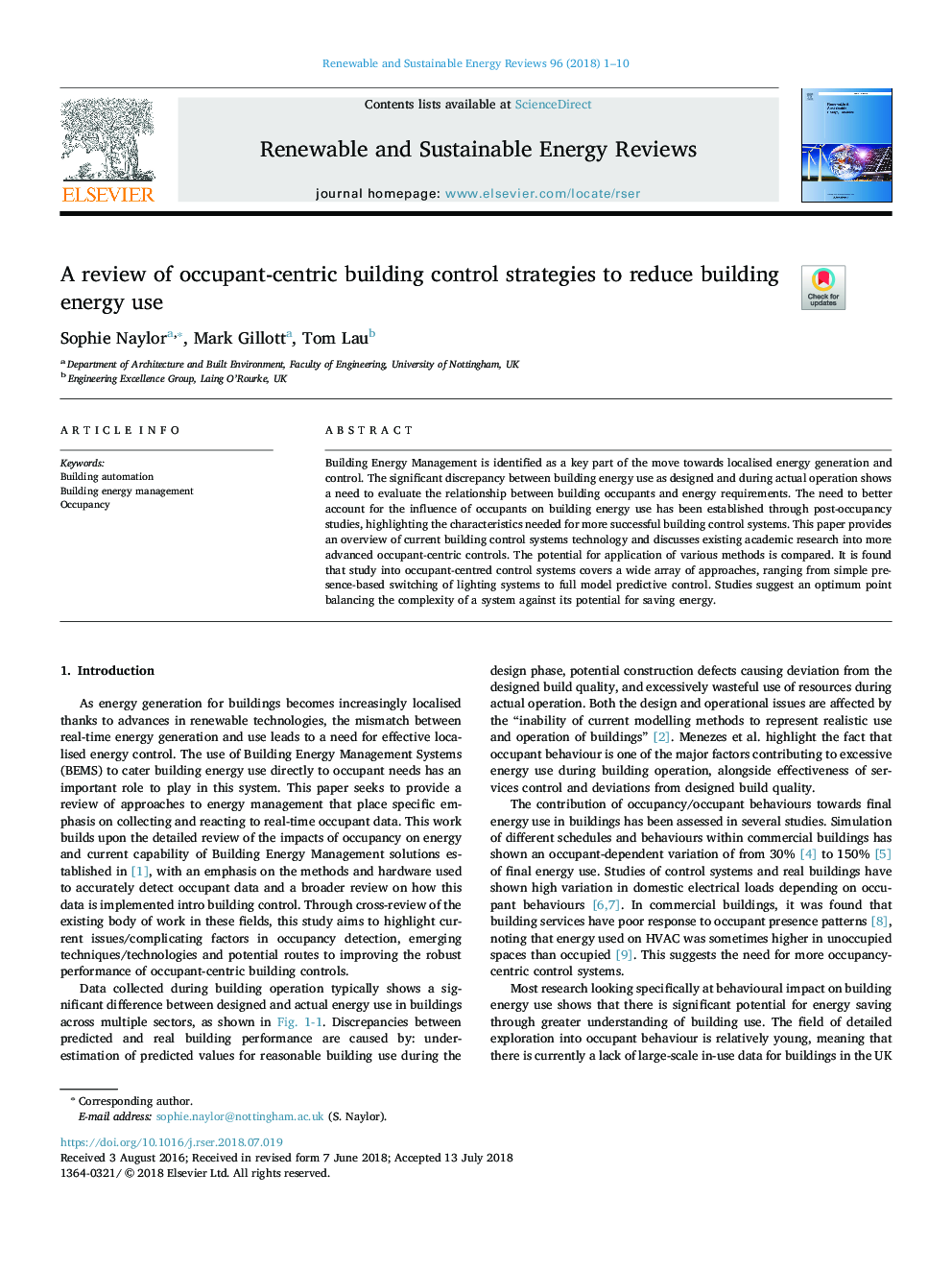| Article ID | Journal | Published Year | Pages | File Type |
|---|---|---|---|---|
| 8110159 | Renewable and Sustainable Energy Reviews | 2018 | 10 Pages |
Abstract
Building Energy Management is identified as a key part of the move towards localised energy generation and control. The significant discrepancy between building energy use as designed and during actual operation shows a need to evaluate the relationship between building occupants and energy requirements. The need to better account for the influence of occupants on building energy use has been established through post-occupancy studies, highlighting the characteristics needed for more successful building control systems. This paper provides an overview of current building control systems technology and discusses existing academic research into more advanced occupant-centric controls. The potential for application of various methods is compared. It is found that study into occupant-centred control systems covers a wide array of approaches, ranging from simple presence-based switching of lighting systems to full model predictive control. Studies suggest an optimum point balancing the complexity of a system against its potential for saving energy.
Related Topics
Physical Sciences and Engineering
Energy
Renewable Energy, Sustainability and the Environment
Authors
Sophie Naylor, Mark Gillott, Tom Lau,
